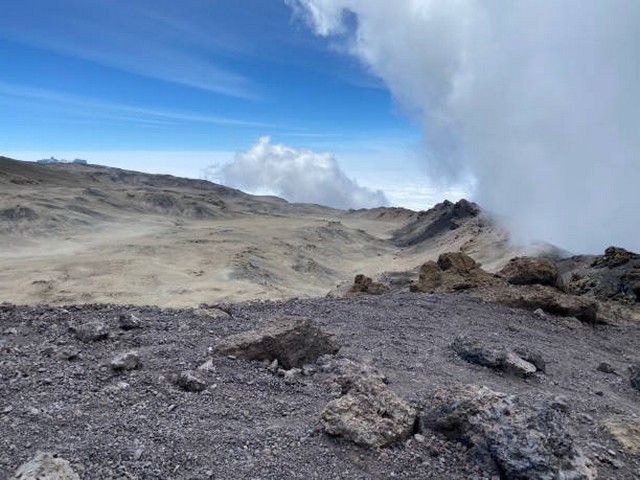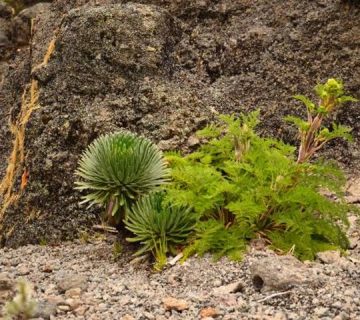Cultural Traditions Of The Chagga Tribe Near Kilimanjaro
Nestled at the lush foothills of Mount Kilimanjaro, the Chagga tribe holds a treasure trove of cultural traditions that have colored the fabric of Tanzanian culture. These traditions are not only a testament to the tribe’s rich history but also a living narrative that continues to thrive in the shadow of Africa’s highest peak. At the Kilimanjaro Centre for Trekking and Ecotourism (KCTE), we believe that understanding the local culture enhances the climbing experience, providing climbers with a deeper connection to the majestic landscapes they traverse.
The Heartbeat of Kilimanjaro: Who are the Chagga?
The Chagga people are the third-largest ethnic group in Tanzania, primarily residing on the fertile slopes of Mount Kilimanjaro. Their adept farming skills, particularly in cultivating bananas and coffee, have made them one of the wealthiest tribes in the region. The Chagga have a rich oral history that is passed down through generations, encompassing folklore, songs, and proverbs that reflect their deep respect for nature and community.
Festivals and Ceremonies: A Colorful Spectrum of Chagga Culture
Mwaka Kogwa: Welcoming the New Year
One of the most vibrant Chagga celebrations is the Mwaka Kogwa, marking the start of the New Year according to the traditional calendar. This festival is a spectacle of joy, featuring singing, dancing, and the symbolic burning of huts to signify new beginnings and the banishment of the previous year’s misfortunes.
Nguvu: The Harvest Festival
Nguvu, the harvest festival, is a time of profound gratitude for the Chagga people. It involves offering the first fruits of the harvest to ancestors, acknowledging their role in the tribe’s agricultural success. This festival is not only a thanksgiving celebration but also a communal feast where stories and blessings are shared.
Marriage and Initiation Rites: The Threads of Continuity
The Rite of Passage
Initiation rites are pivotal in Chagga culture, marking the transition of boys and girls into adulthood. These ceremonies are elaborate and are accompanied by teachings of the tribal lore, duties, and responsibilities they must uphold as adults.
Traditional Chagga Marriages
Marriage within the Chagga tribe is a significant event, often arranged by families. It’s celebrated with elaborate rituals that include the negotiation of bride price, known as "mahari," and an intricate series of traditional dances and songs.
Art and Craftsmanship: Weaving History and Modernity
The Chagga are renowned for their weaving skills, particularly in making "nguo," a traditional blanket made from banana fibers. These blankets are not only practical items used during cold nights but are also significant cultural symbols presented during important life events such as weddings and births.
Culinary Traditions: A Taste of Kilimanjaro
The culinary practices of the Chagga tribe are a direct reflection of their agricultural lifestyle. Staple foods include bananas, yams, and maize, prepared in ways that have been passed down through generations. A must-try traditional dish is "Mtori," a hearty banana and meat stew that epitomizes Chagga culinary tradition.
Interaction with Nature: Chagga Ethnobotany
The Chagga have an intimate knowledge of the flora on Kilimanjaro’s slopes, utilizing hundreds of plant species for medicinal and practical purposes. This deep-rooted ethnobotanical knowledge underscores their respect and stewardship for the environment, principles that resonate deeply in today’s global efforts toward sustainability.
How You Can Experience Chagga Culture
At KCTE, we incorporate cultural tours into our Kilimanjaro treks, offering climbers an enriching experience that juxtaposes the physical challenge of the climb with cultural immersion. By choosing to climb with us, you not only set yourself up for an adventure of a lifetime but also contribute to the local economy and the preservation of these invaluable cultural traditions.
Engage with Us
Ready to conquer Kilimanjaro and immerse yourself in the rich tapestry of Chagga culture? Book your climb with Kilimanjaro Centre for Trekking and Ecotourism (KCTE) and step into a world where every trail tells a story, and every tradition invites you to participate.
FAQs About Chagga Culture and Climbing Kilimanjaro
What is the best time to participate in Chagga cultural events?
Many Chagga cultural events and festivals are aligned with agricultural cycles. The Mwaka Kogwa, for instance, occurs at the end of December or early January. We recommend planning your climb around these times to partake in these vibrant celebrations.
How difficult is it to climb Kilimanjaro?
Climbing Kilimanjaro is a challenging yet rewarding experience. It does not require technical climbing skills, but good physical fitness is essential. KCTE offers various routes and comprehensive support to cater to different fitness levels.
Can I visit Chagga villages during my trek?
Yes, KCTE organizes cultural tours where you can visit Chagga villages. These tours provide an insight into the daily lives of the Chagga people and their rich cultural heritage.
How does KCTE contribute to the local community?
KCTE is committed to responsible tourism. We ensure that a portion of our proceeds goes back into the local communities, supporting educational and environmental conservation efforts.
Embark on a journey with KCTE where adventure meets culture at the roof of Africa. Engage with the traditions of the Chagga, taste their cuisine, and celebrate their festivals as you make your way to the peak of Mount Kilimanjaro.




